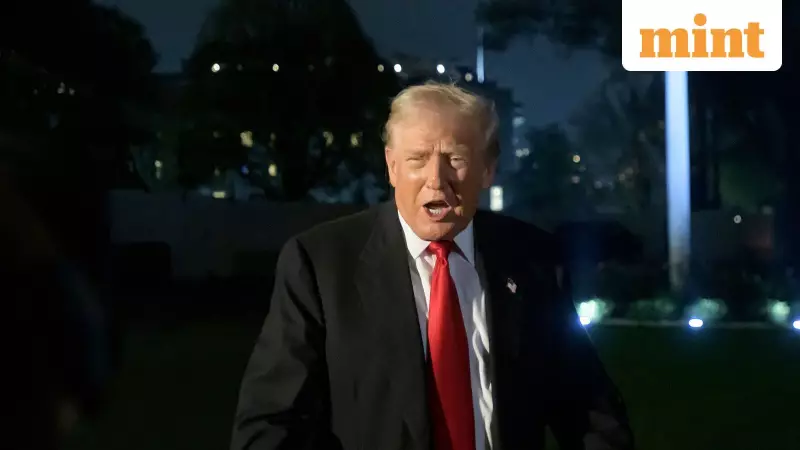
In a significant policy shift, US President Donald Trump has moderated his previously hardline positions on several key international matters affecting India. Since returning to office following his 2024 election victory, Trump had maintained a strongly pro-American stance, particularly on immigration and trade. However, recent developments indicate notable changes in his administration's approach.
H-1B Visa Policy Reversal
President Trump has surprised many by softening his position on H-1B visas, acknowledging America's need for foreign talent. During an interview with Fox News, the US President explicitly stated that bringing skilled individuals from other countries remains essential for the United States.
When questioned about whether restricting H-1B visas would be a priority for his government, Trump responded that America genuinely needs skilled foreign workers. He explained that unemployed Americans cannot immediately fill complex roles in manufacturing and defense sectors without adequate training.
"No, you don't, no you don't … you don't have certain talents, and people have to learn," Trump stated. "You can't take people off an unemployment line and say, 'I'm going to put you into a factory where we're going to make missiles.'"
Tariff Reduction for India
In another major development, President Trump has announced plans to lower the substantial 50% tariffs imposed on India, which were among the highest globally. The tariffs were initially justified by Washington due to India's purchases of Russian oil.
During a White House briefing, Trump revealed that the United States would be reducing these high tariffs, citing India's decreased reliance on Russian oil as the primary reason for this policy adjustment.
"Right now, the tariffs are very high on India because of the Russian oil, and they [India] have stopped doing the Russian oil… It's being reduced very substantially. Yeah, we will bring the tariffs down at some point," the President confirmed.
Indian officials have indicated that trade negotiations between the two nations are progressing positively. One official noted that both countries are working toward a comprehensive, WTO-compliant trade agreement, with India having carefully considered each sensitive sector during discussions.
Support for Foreign Students
President Trump has also reversed his position on foreign students studying in American institutions. In his Fox News interview, he emphasized the importance of international students for the financial stability of US higher education.
"You don't want to cut half of the people, half of the students from all over the world that are coming into our country — destroy our entire university and college system — I don't want to do that," Trump stated.
The President further explained that foreign students contribute significantly to the US economy, paying more than double what domestic students typically pay. He specifically mentioned the substantial revenue generated from Chinese students and those from other countries.
Trump framed the issue in business terms, noting that "We take in trillions of dollars from students" and expressing his desire to see the American education system thrive. He acknowledged that while some might prefer reduced international student numbers, such cuts could force half of US colleges out of business.
These policy shifts represent notable departures from Trump's earlier positions and could have significant implications for India-US relations, particularly affecting Indian professionals, students, and trade relations between the two nations.





